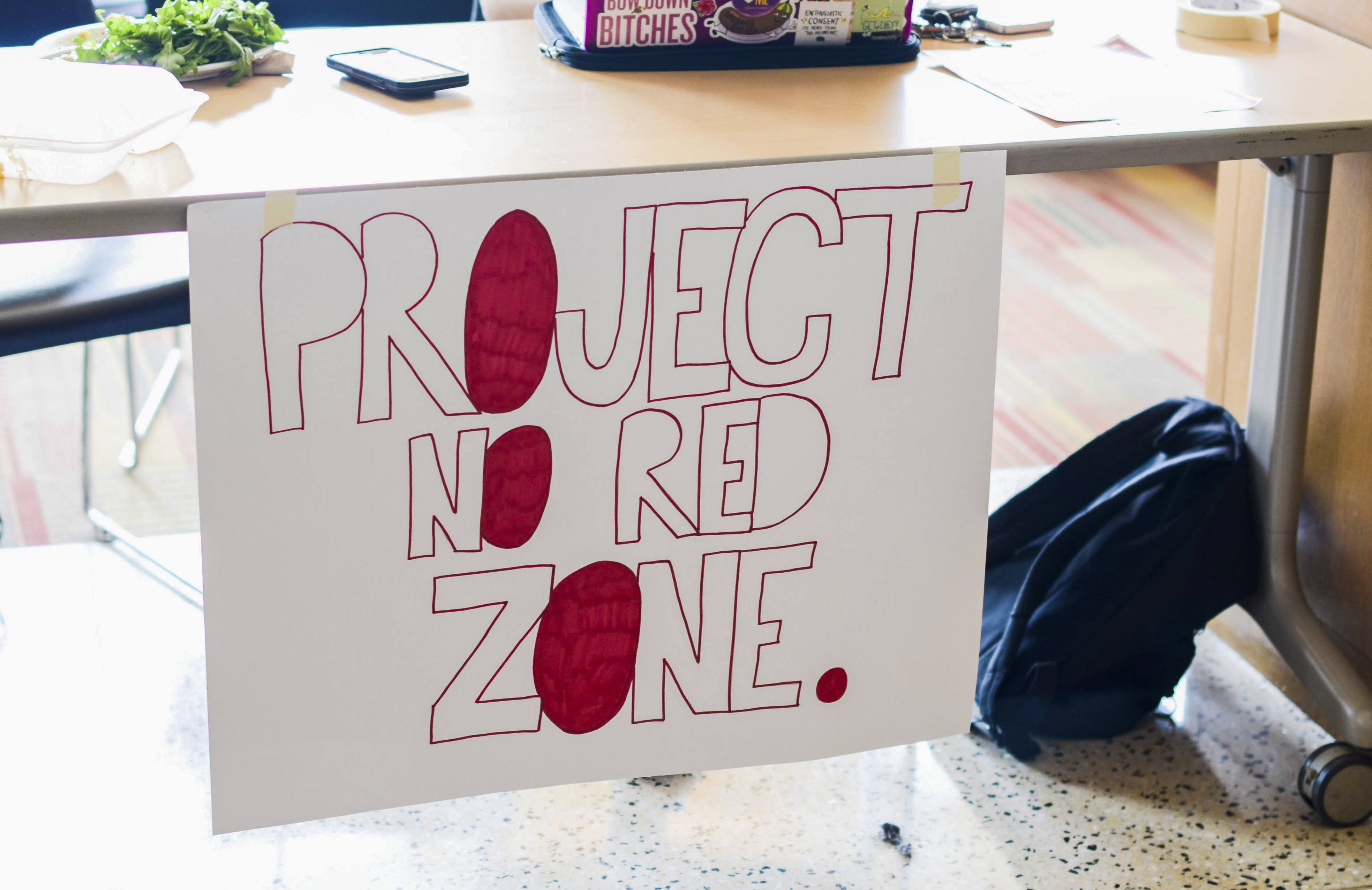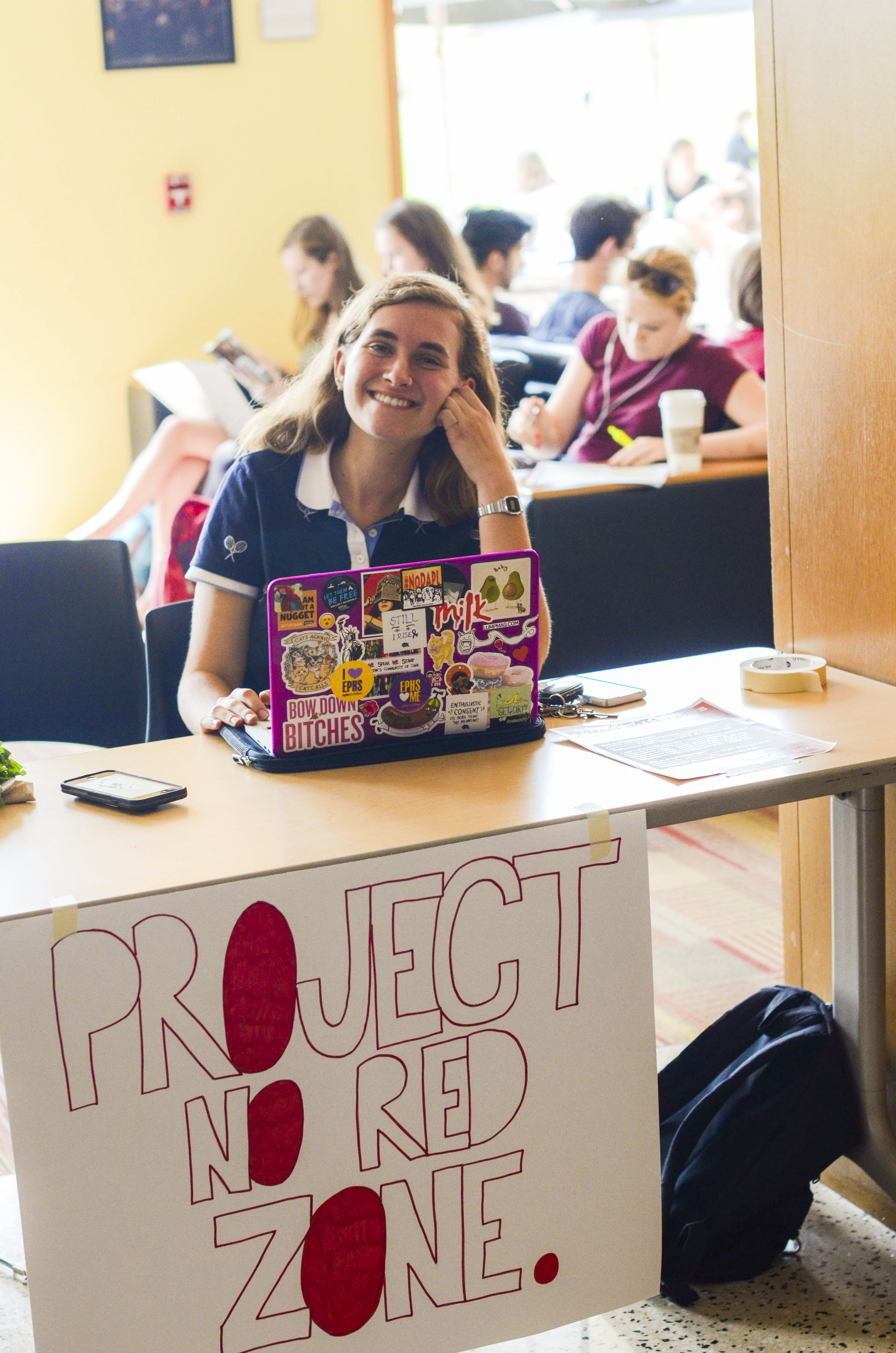
The Wesleyan Student Assembly (WSA) has restarted Project No Red Zone, a program to curb sexual assault, for its second year. WSA President Nila Ravi ’18 and Vice President Sanam Godbole ’18 announced the relaunch in an email on Sept. 6.
“Within the last few days, we launched Project No Red Zone, an initiative to spread awareness of resources for survivors of sexual assault and promote a culture of consent on campus,” Ravi and Godbole said in the campus-wide email. “The Red Zone is the first six weeks of school where students are most vulnerable to sexual assault and violence.”
In her email to The Argus, Ravi further defined “The Red Zone.”
“For frosh in particular, this time [during the first six weeks of school] can be overwhelming,” Ravi wrote. “A lot of information is shared with first years and there isn’t time for as many important in-depth conversations about what consent actually is. They may not know how to effectively speak to each other and their partners, and people may find themselves in unanticipated scary situations.”
Ravi briefly described the history of Project No Red Zone.
“We introduced the project last year after Rebecca Hutman ’17, the previous WSA president, met Jess Davidson, a former Vice President of the University of Denver Student Assembly,” Ravi explained. “Jess started Project No Red Zone at UD in 2015, and we have adopted many of its foundational components in our implementation of PRNZ at Wesleyan.”
Project No Red Zone seeks to educate and inform students on issues surrounding sexual assault, beyond information shared with students during orientation.
“The main goal of Project No Red Zone is to highlight and make known to all students the resources available to survivors of sexual violence on campus,” Ravi said.
To achieve this goal, the WSA will hold several meetings open to students on issues related to sexual assault. The first will be a student-organized training session on consent and bystander intervention, to be held on this Thursday, Sept. 14, from 12-1 p.m., in Usdan 108. According to Ravi’s email to The Argus, Debbie Collucci, the deputy Title IX officer at Wesleyan, and Rachele Merliss ’19, the Sexual Assault Response Team (SART) intern, are set to lead the training session.
Jackie Manginelli ’19, a member of the Student Life Committee, said separate information sessions will be held to inform students of the changes to Title IX policy. The U.S. Secretary of Education Betsy DeVos led the changes to Title IX policy, which Manginelli said were too complicated to summarize in a brief interview.

The information sessions on Title IX will be held in Judd Hall room 116 on: Sept. 12 from 11:45 a.m.-12:30 p.m.; Sept. 13 from 12:15 p.m.-1:00 p.m.; and Sept. 14 and Sept. 19 from 6:00 p.m.-7:00 p.m.
There are additional ways for students to find information regarding sexual assault resources on campus. From Sept. 7 through Sept. 15, WSA members will have a table in Usdan with information for students regarding Project No Red Zone from 12:00 p.m.-1:00 p.m.
New students will also likely be informed of sexual assault resources through their extra-curricular groups.
“This is a time when frosh are eager to find their home in extracurricular groups,” Ravi wrote to The Argus. “In the next few weeks, student groups will be helping them learn and acclimate to ‘the way things are’ at Wes.”
Ravi also called on student leaders to help promote the values of Project No Red Zone.
“As [student groups help first years acclimate to Wesleyan], we hope they can get involved with PNRZ so that they are knowledgeable of resources and can create a culture of consent within smaller communities on campus,” Ravi wrote.
The WSA also plans to spread posters displaying information relevant to Project No Red Zone.
“…we are making posters with the names, faces, and phone numbers of students on campus who have undergone bystander intervention training and are quite knowledgeable of available resources on campus,” Ravi told The Argus. “We are hoping to distribute the posters to various social spaces on campus. Therefore, if someone feels unsafe while they are out partying, they can reach out to one of us and we will assist them in whatever capacity they need us to. If you are a senior or resident of a program house that hosts parties, please keep these posters up during any social event you may be hosting throughout the year.”
Additional resources related to sexual assault can be found on Wesleyan’s website and students’ WesPortals. Updates on Project No Red Zone can be found via the project’s Facebook event page.


Leave a Reply